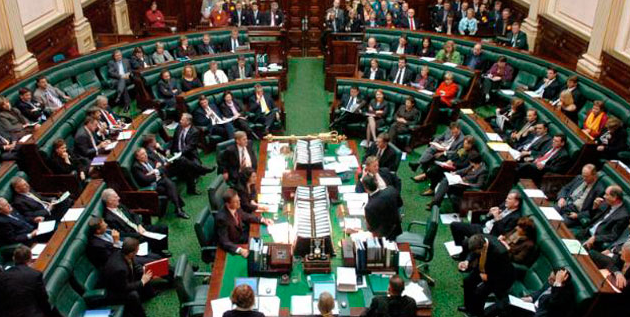 In May of this year, the Turkish Foreign Ministry issued a press release threatening to ban outspoken Australian politicians from participating in the Anzac/Çanakkale Centenary commemoration to be held in 2015. The threat was in response to a bill passed in the New South Wales Parliament recognizing the Armenian, Greek, and Assyrian Genocides. The motion was led by Rev. Fred Nile, a member of the NSW Legislative Council.
In May of this year, the Turkish Foreign Ministry issued a press release threatening to ban outspoken Australian politicians from participating in the Anzac/Çanakkale Centenary commemoration to be held in 2015. The threat was in response to a bill passed in the New South Wales Parliament recognizing the Armenian, Greek, and Assyrian Genocides. The motion was led by Rev. Fred Nile, a member of the NSW Legislative Council.
The Ministry press release stated that those who were involved in the passing of the bill “will doubtlessly be deprived of hospitality and friendship,” and “will also not have their place in the Çanakkale ceremonies.”
The Australian Broadcasting Corporation (ABC) recently reported at length on the Turkish Foreign Ministry statement. The Turkish Consul-General in Australia, historians, and a number of Australian politicians were interviewed for that report.
In an interview with Turkish Consul-General Gulseren Celik, ABC asked if the entire NSW Parliament would be denied visas for the commemoration ceremony. Celik replied “yes.”
NSW Premier Barry O’Farrell hit back, saying “What a terrible indictment by the consul-general of the freedoms fought for on Gallipoli.” O’Farrell believes that the descendants of those servicemen who fought at Gallipoli should attend the centenary commemoration, rather than politicians.
Other NSW politicians have similarly condemned the Turkish Foreign Ministry’s statement, saying they have no plans to visit Turkey for the commemoration.
Anzac Day is a national day of remembrance in Australia and New Zealand. It honors all veterans, and marks the anniversary of the first landing on 25 April 1915 of Australian and New Zealand troops and the start of the Battle of the Dardanelles (also known as the Battle of Gallipoli or the Battle of Çanakkale). A ceremony is held every year in Turkey to mark the anniversary, highlighting the friendly nature of Turkish-Australian relations. Anzac Day is central to Australian national identity.
The Turkish Foreign Ministry statement is similar to the Blacklist released earlier this month by the Azerbaijani Foreign Ministry of persons banned from entering the Azerbaijan Republic because they have visited the Republic of Nagorno-Karabakh. Interestingly, the Parliament of New South Wales adopted a resolution in October 2012 recognizing the Republic of Nagorno- Karabakh and the right to self-determination of its Armenian population.
















